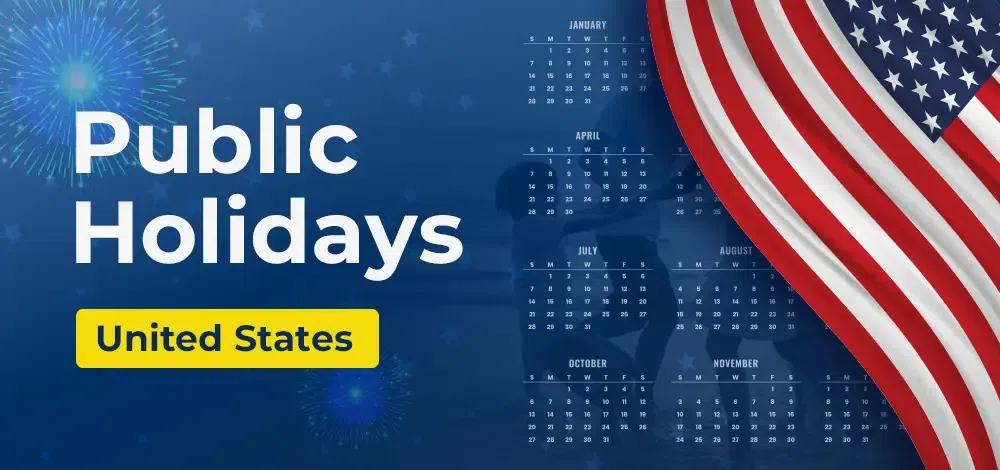Federal/ public holidays in the U.S. offer precious opportunities to rest, celebrate, and reflect. However, navigating these days off can involve some intricacies for federal employees. Let’s delve deeper into the details of 2024’s federal holidays:
Paid Time Off, with a Few Catches (Federal Employees):
The good news: The law (5 U.S.C. 6103) guarantees all 11 designated holidays as paid days off to federal employees. But here’s where things get a little more nuanced:
- Weekday Holidays Might Require Leave Requests: Certain holidays lead to automatic government shutdowns, granting you a day off without needing anything. However, if a holiday falls on a weekday, you might need to tap into your sick leave or accrued annual leave if you desire the day off.
- Flex Your Schedule (For Some Agencies): Some agencies embrace flexible scheduling. This could involve working alternate hours around the holiday to compensate for the day off. You can choose to work on the holiday itself and earn overtime pay.
- Part-Time and Temporary Considerations: Your holiday benefits may differ based on your work setup. These benefits are often based on a prorated schedule or alternative arrangements outlined in your employment contract.
2024 Federal Holidays: A Closer Look
Now, let’s explore each 2024 federal/ public holiday with its significance and potential implications for federal employees:
- New Year’s Day (Monday, January 1st): A time to celebrate a fresh start, reflect on the past year, and set goals for the year ahead. Most government offices will likely be closed on this day.
- Birthday of Martin Luther King, Jr. (Monday, January 15th): A day to honour Dr. Martin Luther King Jr.’s legacy and his fight for civil rights and equality. Government offices will likely be closed on this day.
- Presidents’ Day (Monday, February 19th): Originally established to honour George Washington’s birthday, it now celebrates both Washington and Abraham Lincoln. While some government offices might close, for others, it might be a regular workday requiring leave requests if desired.
- Memorial Day (Monday, May 27th): A day to remember and honour those who died serving our country in the U.S. Armed Forces. Most government offices will be closed on this day.
- Juneteenth Independence Day (Wednesday, June 19th): A new federal holiday commemorating the emancipation of enslaved African Americans in the United States. Government offices will likely be closed on this day.
- Independence Day (Thursday, July 4th): Celebrating the birth of the United States of America. Closure of most government offices will be observed.
- Labor Day (Monday, September 2nd): A day to honor the achievements and contributions of American workers. Most government offices will be closed on this day.
- Columbus Day (Monday, October 14th): Marking Christopher Columbus’ arrival in the Americas. Practices around this holiday vary by agency. Some might close, while others might require leave requests.
- Veterans Day (Monday, November 11th): A day to honor all who have served in the U.S. Armed Forces. Most government offices will be closed on this day.
- Christmas Day (Wednesday, December 25th): Celebrating the birth of Jesus Christ (observed by Christians). Most government offices will be closed on this day.
Bonus: Inauguration Day (Every Four Years)
While not technically a federal holiday, Inauguration Day is observed every four years on January 20th following a U.S. presidential election.
By understanding these details, you can effectively plan for upcoming federal holidays in 2024 and navigate potential leave situations as a federal employee. Now, you can focus on enjoying some well-deserved time off and reflecting on the historical significance of these critical days.










